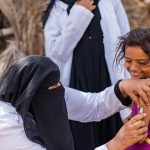Remarks by CARICOM Assistant Secretary-General, Joseph Cox, at launch of USAID-supported workshop

CARICOM Assistant Secretary-General of the Directorate of Economic Integration, Innovation and Development, Mr. Joseph Cox, on Monday 24 April, made remarks at the launch of the USAID-supported training in the efficient use of fertilisers, bio-fertilisers and nutrient management in Guyana. The launch was held at the Guyana School of Agriculture auditorium, Mon Repos, East Coast Demerara, Guyana.
Hon. Zulfikar Mustapha, Minister of Agriculture
Mr. Mervyn Farroe, USAID/ESC Regional Representative
Mr. Khalil Ahmed USDA Representative
Mr. Robert Persaud, Foreign Secretary
H.E. Ms. Sarah-Ann Lynch, US Ambassador to Guyana
Distinguished Ladies and Gentlemen all.
Good morning,
It is my distinct honour to provide remarks at this the launch of the USAID-supported training in the efficient use of Fertilisers, Bio-fertilisers and Nutrient Management here in Guyana.
The training from our perspective is timely as there now is an urgent need to rethink how we use and apply fertilisers throughout the Region. This training is deemed to be aligned with the agriculture and sustainable goals and priorities of the CARICOM Region and undoubtedly contribute to achieving the goals of the 25 by 2025 regional food security initiative as well as the Sustainable Development Goal of Zero Hunger. The objective of the 25 by 2025 initiative covers critical areas of investment, climate change adaptation, research and development, digitisation, risk management and production inputs, which are required for greater food security.
It should be noted that St. Vincent and the Grenadines, St Lucia and Trinidad and Tobago have already benefited from this training. We are optimistic that similar successes will obtain in Guyana and in the remaining Member States to come.
In that regard, the Region is at an inflexion point as the number of people estimated to be facing moderate to severe levels of food insecurity in the English-speaking Caribbean is high. The incidents of food insecurity have risen by an alarming 46 per cent in recent times. Nearly 4.1 million people or 57 per cent of the population now face food insecurity, according to a recent survey conducted by the Caribbean Community (CARICOM) and the United Nations World Food Programme (WFP). It is also instructive to note that the Region has the highest cost throughout the entire world for a healthy diet/meal. This poses a clear and present danger for the Region that must be urgently addressed.
In fact, there is a direct correlation between population growth and food demand. As the population expands there is a concomitant requirement to scale up food production to meet the attendant food demand.
However, over time, poor agrarian practices have led to a significant portion of arable land across the Region, losing the naturally endowed nutrients resulting in sub-optimal yields. In that regard, alternative measures such as fertilisers, pesticides and herbicides are employed to fortify the soil and scale-up productivity and overall production.
However, we have to remain mindful that the use or perhaps the misuse of chemical or synthesised fertilisers, pesticides and herbicides pose several dangers to human and animal health. Indeed, when fertiliser is over applied, they can also become an environmental pollutant.
Indeed synthetic fertilisers that consist of various nutrients such as Nitrogen, Phosphorous, Potassium and Sulphur may become harmful if used beyond the required amount. The harmful effects of these fertilisers include the weakening of plant roots, the high rate of disease incidence, soil acidification and eutrophication of groundwater and other water bodies. Nutrients such as nitrates leach into the groundwater creating the potential for several serious medical issues.
Studies reveal that there is a significant amount of pesticide residue present in food stuff long after they leave the farm-gate, hence the need for alternatives such as bio-fertilisers in ensuring food safety and security.
Use of bio-fertiliser is recommended under Integrated Nutrient Management strategic framework for use in all crops. Bio-fertilisers are live microbial products which do not contain any nutrients. The micro-organisms present in the bio-fertilizer ensure availability of nutrients from non-available forms present within soil and air to available forms which plants can uptake. Bio-fertilisers are cost-effective and eco-friendly in nature and their continued usage enhances soil fertility. They also increase crop yields by 10 – 40 per cent by increasing protein contents, essential amino acids and vitamins and by nitrogen fixation.
This is particularly germane as the prices for agricultural commodities and inputs are expected to rise even further, adding to the cost-push inflationary impulses globally. In fact, the World Bank has reported that fertiliser prices have risen nearly 30% since the start of 2022, following the 80% surge in 2021. Worldwide, concerns around fertiliser affordability, availability and access have been amplified by the war in Ukraine and governments fear the effects to the vulnerable and smallholder farmers who depend on the production of staple crops as a source of food and income but who may not be able to afford to purchase the fertilisers. The Region imports and uses in excess of 150,000 MT of fertilisers annually.
However, farmers can use fertilisers with more flexibility to respond to these price hikes, as they now have tools that can help them manipulate fertiliser use without compromising outputs. Such tools include variable rate application – which means applying varying rates of inputs in appropriate zones – and precision agriculture. Soil maps are also one of those tools. The successful development and adoption of a national soil database would demonstrate that with more information on their soil condition needs, farmers can use fertilisers with greater impact and lower intensity of use.
Hence, there is now a real need for the Region to rethink the usage and application of fertilisers. This will require improvement on the utilisation and management of fertilisers, bio-fertilisers, and organic fertilisers to increase sustainable, cost-competitive production and improved productivity.
Notwithstanding, there must be a workable mechanism that causes a balance to occur in the use and application of fertilisers. It has to be executed within the context of agricultural health and food safety and the protection of the environment. There will also have to be a clear strategy with respect to the use of organic and in-organic fertilisers.
I would wish to highlight here that there are ongoing projects, which are being spearheaded by the CARICOM Secretariat to ensure the protection of biodiversity and various eco-systems within the Region through the management and use of chemicals that affect the environment.
The CARICOM Secretariat with financing contributions from the European Commission is currently implementing the third phase of a Capacity-Building Related to Multilateral Environmental Agreements (MEAs) project. A number of actions on Chemicals and Waste management are being implemented by the Secretariat to support the enforcement and compliance with the Basel, Rotterdam, Stockholm, Minimata and Cartagena Conventions that our Member States have ratified. These actions are synergistic and complementary with other projects and activities being undertaken in the region by organisations such as UNEP, FAO and the Basel Convention Regional Centre for Training and Technology Transfer for the Caribbean (BCRC-Caribbean).
The results will promote practical measures to effectively implement the Conventions’ objectives as it relates to developing national inventories and registers for Persistent Organic Pollutants and other hazardous wastes.
Equally, the responsible use and application of fertiliser are just as important. As food safety and traceability standards evolve, develop and grow, the application and use of fertilisers have to be in line with these new standards and requirements. It is also felt that as a region, we have been using just too much fertiliser in growing without proper management. It is anticipated that this training and workshop will equip our CARICOM farmers and agricultural workers with the knowledge that is needed to be compliant resulting in sustainable food systems.
In closing, I want to express our gratitude to the Government of the United States and urge the participants to make full use of the technical information and application, which will be provided.
Thank you
Source: CARICOM TODAY

 Previous Post
Previous Post Next Post
Next Post